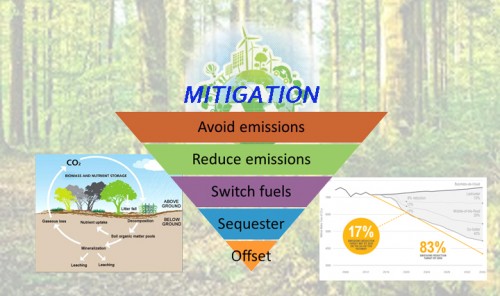
By Fraser Perkins —
Last month I stressed the United States needs to take firm action to mitigate Climate Change. In surprising – no – in stunning fashion, Congressional Democrats passed, and President Biden signed, the prosaically titled Inflation Reduction Act (I.R.A.). While not perfect, this legislation sets the US firmly on a path toward sustainability and reduction of greenhouse gas emissions. President Biden set a goal of reducing US greenhouse gas emissions by 50% by 2130; the I.R.A. will accomplish about 80% of this goal. This is Step 1 in a four-step process to solve the Climate Crisis.
Step 2 requires the United States to encourage, cajole, entreat, support, and if need be, threaten our friends, allies, and neighbors to do likewise. Most were already primed to act, and would have done so had the United States made a firm climate commitment. At least that was the consensus in January 2022. The Russian invasion of Ukraine upended the cozy energy relationship between Europe and Russia and put our European allies in a bind. It would be hopeful and helpful if they view the conflict as an opportunity to redouble efforts to move from fossil fuels to renewable energy. Hopeful, but difficult. The temptation is to direct all their attention to dealing with acute shortages of energy, especially natural gas, and sidestep the consequences of developing new fossil fuel supplies. The European Parliament recently reclassified natural gas as a “green” fuel source. This is patently false; sweltering heat waves, forest fires and flooding will remind Europeans to embrace renewable energy and leave “green” natural gas in the rear-view mirror.
Step 3 – China. China has committed to using 80% renewable energy by 2060. China, and Asia in general, run on coal-fired power plants. China cites a reduction in carbon intensity – the amount of carbon produced per unit of GDP – as evidence of its commitment to climate mitigation. This is a distraction, not a commitment. Short term it does little to reduce greenhouse emissions and delays hard decisions until much later. China also views climate cooperation as a bargaining chip in its tense relationship with the United States. Speaker Nancy Pelosi’s recent trip to Taiwan promptly caused China to break off climate talks. China will modify its stance not because of US pressure, but because it is in China’s best interest to mitigate Climate Change. Like the West, China suffers from extreme weather events, flooding, and drought. Beijing and environs are especially short on water.
Step 4 – the toughest step. All the climate gains of steps 1 – 3 could be wiped out unless the US, the West and China assist the developing world in transitioning directly to renewable energy. Failure to provide substantial assistance will push the developing world to default to the cheapest source of power – coal-fired plants. This would be catastrophic. No developing nation will allow itself to be without electric power; it is in our best interest to make sure their future runs on renewables, not fossil fuels.

Leave a Reply